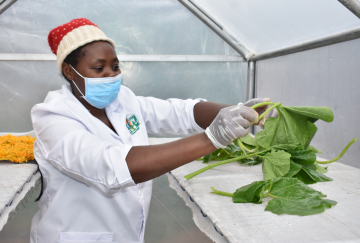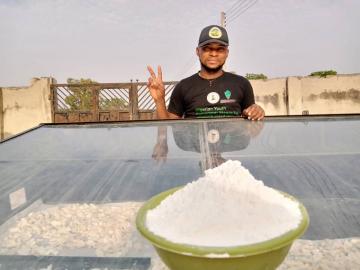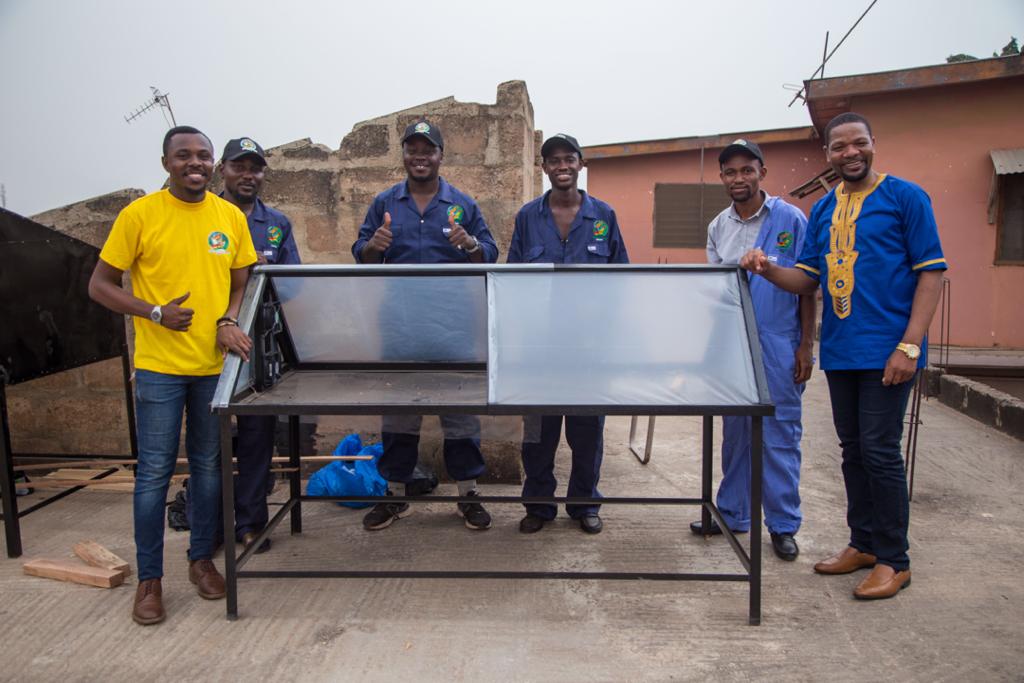 The informal sector accounts for an overwhelmingly majority of all employment in sub-Saharan Africa. These are the unsung heroes and heroines of Africa’s growth and have been so for a long time. Unfortunately, they are being hit hard by the coronavirus pandemic.
The informal sector accounts for an overwhelmingly majority of all employment in sub-Saharan Africa. These are the unsung heroes and heroines of Africa’s growth and have been so for a long time. Unfortunately, they are being hit hard by the coronavirus pandemic.
Informal and open-air food markets throughout African cities are vital for the poor who rely on them to buy and sell fresh food and to earn a living. But these small retailers and grocers, who trade under $150 daily, are facing closure by the authorities in an effort to stop the spread of the virus in crowded places. While these closures are unquestionably well-intended and being done out of public health concerns, they are having an adverse economic impact on so many whose livelihoods are at stake. Farmers and food traders are facing significant losses as tonnes of fresh perishables rot due to curtailed sales.
The urgency to buffer losses for this critical group that is the fabric of the African economy is critical to preventing a total unravelling of the continent’s economy post-COVID-19.
Going solar
 One innovative solution being used to fight back and salvage food losses is through mechanical solar dryers. You heard correctly, solar dryers. These low-tech devices – made affordably by youth using locally available materials and local labour – have proven to not only benefit the agro-value chain across Africa, but are low in carbon emissions.
One innovative solution being used to fight back and salvage food losses is through mechanical solar dryers. You heard correctly, solar dryers. These low-tech devices – made affordably by youth using locally available materials and local labour – have proven to not only benefit the agro-value chain across Africa, but are low in carbon emissions.
The dryers effectively dehydrate various food items to single-digit moisture content levels and do so hygienically – a critical step to prevent multiplication of bacteria that can lead to rotting. These dryers have also proven to be more effective than traditional open-sun air drying. This is a solution that could be scaled up if it gets the right investments and support, especially for youth who have a role to play.
In Africa, youth makes up over 60% of the population and are hungry for employment opportunities. To this end, the United Nations Environment Programme (UNEP) – through an innovative volunteerism programme under the Ecosystem Based Adaptation for Food Security (EBAFOSA) framework – is helping African youth improve, refine and adapt their skills and small-scale enterprises to further develop the solar dryers. In Kenya, Uganda, Nigeria, Ghana, Cameroon and elsewhere, they are taking on this climate-action solution as an additional income opportunity and working with farmers to ensure its affordable delivery.
To increase affordability, the youth are working with farmers in cooperatives to enable them to pool their resources and acquire the solar dryers communally, as opposed to each working individually. They are also learning to use locally available material, which is resulting in solar dryers that are 200% cheaper than what is available in the market; the average cost of these dryers is $200 per piece compared to $600 for similar sized dryers in the market. Further studies are underway to make the dryer cheaper while enhancing efficiency. And, they have launched solar drying services by opening “drying centres”. These centres provide pay-as-you-go” solar drying services at a cost that is a fraction of the value of purchasing a solar dryer.
Making an impact
 Through all these actions, the youth are providing much needed affordable value-added services while earning an income. Here are a few examples of success stories from throughout the continent:
Through all these actions, the youth are providing much needed affordable value-added services while earning an income. Here are a few examples of success stories from throughout the continent:
In Kenya, rice farmers have saved up to 50kg each previously lost because of inefficient drying. The dryers have also proven effective – dehydrating diverse food items to up to 4%, which is below the threshold of 12% needed to prevent food spoilage and aflatoxin attacks on food products.
In Uganda, cassava farmers have been able to reduce moisture up to the recommended threshold of 12% critical to prevent aflatoxin attacks. They have reduced losses by up to 72% and saved up to $42 per acre and are projected to recoup up to $9,476 per season that is currently lost due to rotting.
In Cameroon, cassava farmers – up to 500 women in a local cooperative – have reduced losses by 30% and readied their cassava for processing into flour which they sell to millers and earn up to five times more.
And in Nigeria, the solar dryers have enabled women in a local market dehydrate their vegetables, tomatoes and papaya that remains unsold at the end of the day. This is increasing shelf-life, enabling development of additional product lines and as a result, earning these farmers up to 30 times more when they sell dried produce in the off season when demand peaks.
The solar dryer delivered through youth-driven enterprises working with informal sector traders in the agro-sector is a formidable solution to deploy to buffer traders against losses of perishables occasioned by closure of markets. This is critical to forestall economic after effects post-COVID-19.
Richard Munang is the United Nations Environment (UNEP) Africa Regional Climate Change Programme Coordinator. He is also the UNEP Ecosystem Based Adaptation (EbA) for Food Security Focal Person currently coordinating and guiding the roll-out of the UNEP-Africa Ecosystems Based Adaptation for Food Security Assembly in over 40 countries.


